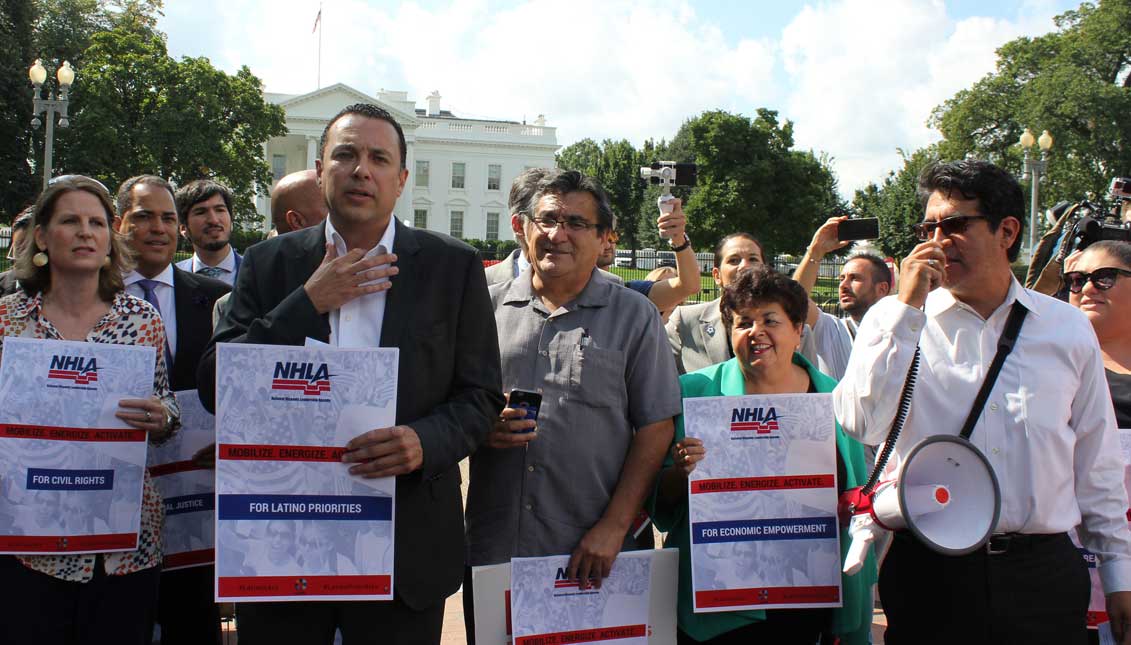
[OP-ED]: This Hispanic Heritage Month, let’s look past the kitsch and have a meaningful discussion
This past weekend I saw a few cars flying Mexican flags.
My first reaction was fear -- I live in an area where you’re as likely to see a “Si se puede” sticker on a car as you are a Confederate flag or a “Make America Great Again” yard sign. Naturally, I was concerned that whatever brave soul dared to conspicuously celebrate Mexican Independence Day was courting danger.
I honked to offer moral support. And I recalled that just the other day I said to my class of Hispanic students -- in the most deadpan voice I could muster -- “Soon it’ll be Hispanic Heritage Month. Yay.”
This is arguably the worst month of the year.
Not because there isn’t beauty and pride to be found in the spotlighting of folkloric dances and music, traditional cooking and the works of artists of Latin American descent. But because (like everything else these days) it is so fraught with symbolism and politics that it has become a designated period of grievance-airing.
It used to be that the “celebration” would inspire mere political pandering and insane product marketers adding a taco, pinata or mariachi hat to packaging in order to feign relevance to the Latino community.
Over the past couple of years some have renamed Hispanic Heritage Month to “Latinx Heritage Month” -- because the term “Hispanic” is, to them, passe and “Latino” is not gender inclusive enough.
Others put down the whole thing as illegitimate. Political observer Adriana Maestas recently wrote: “People of Mexican, Central American and South American descent shouldn’t have to celebrate heritage that is tied to invaders and colonizers.”
This rolls straight into bitter arguments, impassioned pleas and (hopefully nonviolent) protests sparked by those who believe Columbus Day should be renamed “Indigenous Peoples Day.”
RELATED CONTENT
This is all topped off by a whole October’s worth of manufacturers and retailers taking the looks and styles of the religious Day of the Dead traditions practiced across Latin America and selling them as cheap Halloween decorations and costumes.
It’s beyond exhausting. The so-called conversations about these “issues” that permeate the internet at this time of year are a colossal waste of time and energy within an already very loosely united populace. Sure, these people all share a common tie to Latin America but they diverge widely when it comes to country of origin, language, customs, culture, political views and interest in “what it means” to be what the U.S. Census calls the “Hispanic population.”
I trace some of these troubles to the obsessive -- and completely ineffectual -- fixation on the semantics of Hispanic identity.
The hours and hours of time, effort, money, talent and energy that some have spent arguing about whether “Hispanic” or “Latino” is the better moniker, lobbying for the term “illegal immigrant” to be banned, and policing the use of the word “American” (the logic being that anyone from North and South America is an American, though there isn’t a soul outside the United States who would call someone from Chile or Mexico or Canada anything other than a Chilean, Mexican or a Canadian) have been fruitless.
And the next frontier seems to be the phrase “nation of immigrants.”
People who use it typically do so to defend immigrants and portray them as an integral part of our country’s fabric. Critics say that this phrase excludes and marginalizes Native Americans, Hawaiians, Puerto Ricans and blacks.
In the Chicago Sun-Times, Natalie Moore explained it: “When we hear platitudes like ‘we are a nation immigrants’ (sic) or ‘immigrants built this country,’ it feels like an erasure -- not just of native people but black Americans who are descendants of enslaved Africans.”
Victor Landa, editor-in-chief of the Hispanic-focused news website NewsTaco, said in a recent Facebook Live video that we need to stop saying the term because it has become lip service: Why do we celebrate going to Chinatown or Little Italy but get mad when we see a neighborhood where the business signage is in Spanish?
These are interesting concepts to question and vital conversations to engage in -- and we shouldn’t relegate them to a made-up heritage month. But it’s worth noting that while words do matter, they become a brick wall if we can’t get beyond terminology to actually participating in meaningful dialogue.










LEAVE A COMMENT: